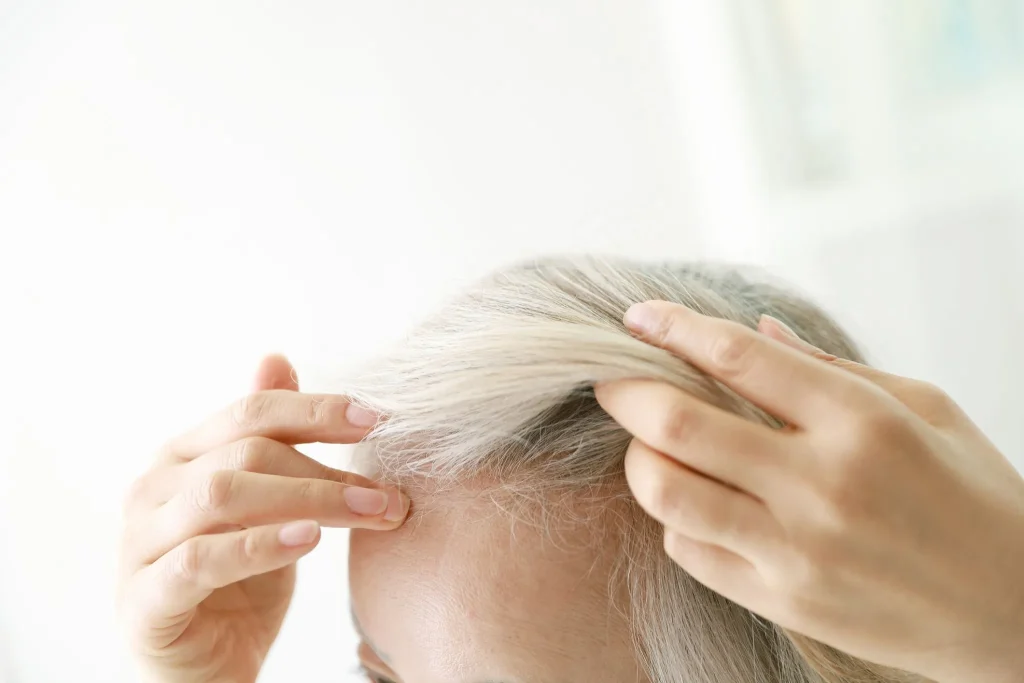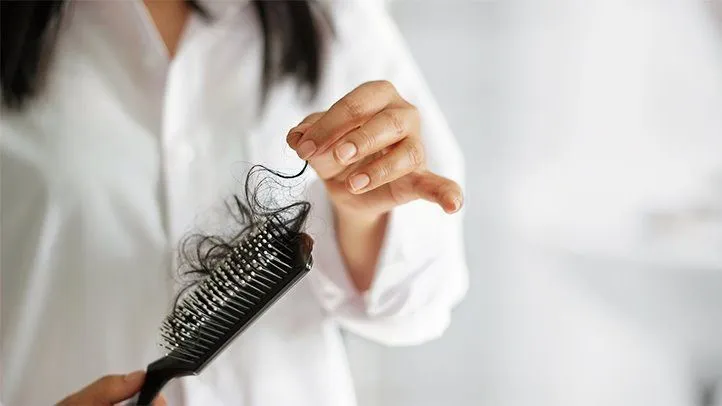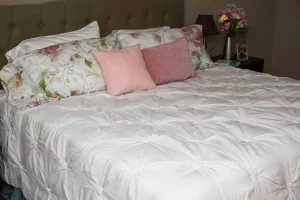Hormones and Medication can affect your hair at midlife. How?
Oh, menopause, how you have forsaken me, let me count the ways…
Well, I seem to be post-menopausal, but I am still seeing signs that the low estrogen levels have affected me.
Ok. I am just going to say it. Men do not go through what women do!
Hormones and Menopause
Hair Loss or Thinning
Lower levels of estrogen and progesterone can affect hair loss or thinning, as other hormones (androgens) can cause hair follicles to shrink.
Do you seem to notice more hair in your hairbrush?
When hormones dip too low, you may notice hair loss in the thinning hair on your crown or a receding hairline. I have certainly noticed the difference in my hair’s texture ( finer) and that some of my hair line has receeded at the temple area. There is quite a difference between when I was 40,to now, at age 53.
And speaking of hormones, I have recently noticed many younger girls ( in their 20s and 30s) dealing with thinning hair due to pregnancy.
I used to wonder, as a teen, why many women over 50 would get shorter hair cuts. I truly thought it was about less maintenance. While, this is still a viable reason, I know now that our hair can begin to thin, and often, the styles work better with thinning. hair.
“According to the NIH and the National Library of Medicine, in a study of pre- and postmenopausal women without alopecia, menopausal status significantly influenced hair parameters, specifically hair growth rate, percentage anagen and hair diameter distributions, most notably in the frontal scalp.”
It was also shown that hair density played a role with age, not because of menopause.
But did you know that there are “estrogen receptors” on our hair follicles? ( I just learned this!)
It seems an evil joke that there may be less hair on our head after menopause, but it does seem to show up elsewhere! Anyone notice the peach fuzz white hairs on their chin or jawline?

Medications
There are many medications that can cause hair thinning or hair loss. There are always side effects to consider, especially, if the idea of hair loss may be worse than
the medication is used for. However, you should always check with your doctor before stopping any medication.
My hair stylist and friend noted that my hair was “accepting color” differently recently, and there were some changes in texture. There are a certain list of medications that can contribute to changes in your hair, or hair changes due to side effects.
I have whittled down my medications from 10 to 4 over the last several years, but several of the ones I take can be effecting hair growth.
Some Vit A Retinoids, blood thinners, antibiotics, antidepressants, thyroid medication and steroids, are a few meds that can have an effect on hair. If you are concerned, speak to your doctor.
Other Causes
According to the Mayo Clinic,
“Hair loss can be a side effect of certain drugs, such as those used for cancer, arthritis, depression, heart problems, gout and high blood pressure.”
There are other reasons for hair loss that we have a bit more control over.
These include:
Poor Nutrition or Restricted Diets
Fast Weight Loss
Stress-
Certain Hairstyles- pulling back your hair tight everyday into a ponytail.
Ones that can be helped-
Other Conditions- Lupus, Inflammatory conditions which affect the scalp.
What Can We Do?
Wigs- If Alopecia is a condition affecting you, there are so many wig companies out there that look so natural, no one could tell it’s a wig! These are not your
“Grandma’s wigs”. You know, the synthetic, shiny haired wigs of yore!
If you don’t want a whole wig, there are many “toppers” out there that can help hairlines and the “top”/sides of the head.
Ask Your Doctor, if it you are certain about a medication ( that may not be helping you) that causes hair loss.
Rogaine
PRP- Platelet Rich Plasma
Hair Transplant if severe.
Do make sure there aren’t other factors that are causing the problem. Make sure your diet is healthy and you are getting enough nutrients.



